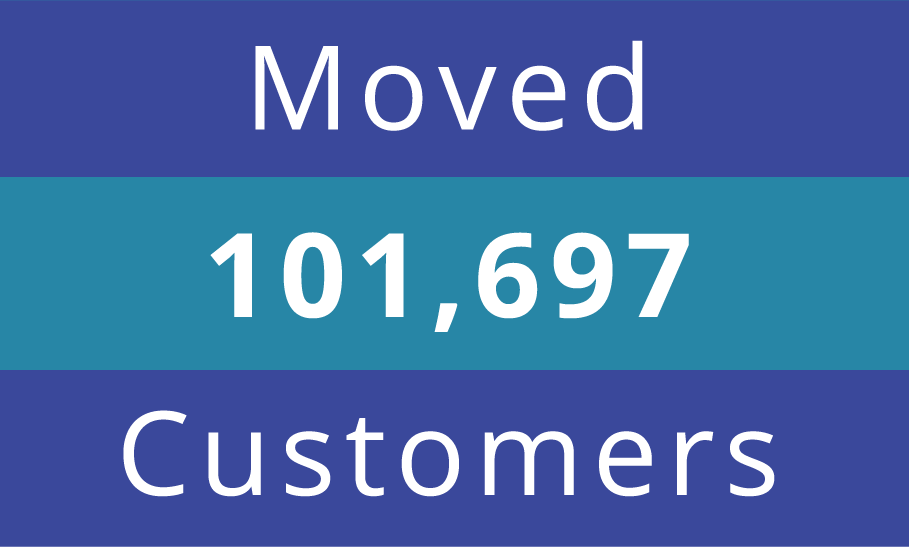Moving to Germany: A Guide for Expats
Germany is a vibrant, modern country that boasts a great standard of living and plenty of opportunities. From magical landscapes to bustling cities, there’s something for everyone and over the years thousands of Britons have made it their home.
Organisation is key, and if you’re considering moving to Germany from the UK there are several essential tasks to organise both before your move, and during your first few months of residency. To help make your process run more smoothly, we’ve put together this practical guide for expats who are preparing to make the move to Germany.
Things to know before your move to Germany
- Buying property: First on your list should be to search for the perfect property to move into. Your future home will become the foundation of your family’s new life, so it’s vital that you give this decision plenty of time and thought. Consider aspects such as location and distance to transport links, facilities, school, work and also research the crime stats of your targeted area. Decide on a maximum budget and make use of the expertise of a professional estate agent to give you some guidance. If you can afford to, you may wish to keep on your current house in the UK and rent it out to earn some extra cash on the side. Also, don’t forget to inform your British utility companies of your change of address to prevent personal details being sent to your old abode.
- Visas & Permits: British citizens never usually require a work permit or visa to work in Germany, but this status might change. We recommend making some inquiries with the UK Home Office to keep tabs on when possible changes are likely to be implemented. But whatever happens, it will still be possible to emigrate to Germany, albeit with a change of process.
- Education: Germans highly value education and training. If you’re thinking of homeschooling your children, then think again – this method of schooling is illegal in Germany. Children are required to attend school between the ages of 6 – 15 and at secondary school level, children are split up depending on their academic performance and sent to a specific school to match their ability. However, going to a German school will be very popular with your youngsters as school uniforms are virtually non-existent in this country.
- Healthcare: German healthcare is very efficient, and because it enjoys plenty of funding most hospitals can offer the latest technologies for their patients. However, healthcare is not free like it is in the U.K. and health insurance is needed. If you are employed, health insurance will be paid automatically from your salary, and if you are on benefits, the state will pay health insurance for you. It’s also worth taking a 90 day fill of any medications before your arrival as the prescription from your doctor will need to be changed into a German one.
- Finding employment: With a low unemployment rate (3.2% in 2019) Germany is a fruitful place to secure work, and is a country that boasts a stable economy. You might want to book yourself onto a night course, as a proficiency in the German language will make you more appealing in the job market. And whilst experience is certainly important, relevant qualifications are vital to secure certain jobs. Some expats prefer to secure a job before they move, but others prefer to take a gamble and search for work upon arrival in their new country.
- Pets: If you want to bring your furry friends with you overseas, there are a few practicalities to attend to. All cats and dogs must have been vaccinated for rabies at least 21 days before their arrival in Germany, along with the accompanying paperwork. Germans are also very keen on pets being well-trained, enough to be able to access public transport and restaurants with minimal trouble. Bear in mind that certain dog breeds, such as pit bulls, are not allowed in Germany full stop.
- Find the right removals company: Moving to Germany may seem like a colossal logistical task, but it can be made much simpler by hiring an experienced international removals company – such as Reads Removals. These companies will safely transfer your belongings overseas with minimal hassle and strict safeguarding.
Things to know once you have moved to Germany
- Registering your residence: Registration papers must be completed within a week of touching down in Germany. As soon as you can, take a trip to your local registry office; all residents must complete registration in person and not via email or phone. Without this registration paperwork it will be difficult to launch your new life in Germany, and will be totally impossible to open up a bank account without this documentation.
- Open a German bank account: To be paid a salary you must have a German bank account. You will need to have completed the registration step in order to do this. You will be charged German tax like any other German resident, and this will usually come into effect if you express an intention of remaining in the country for six months or more. And you will be relieved to know that a double taxation agreement is in place, preventing you from paying tax in both the UK and in Germany simultaneously.
- Getting around: Like the U.K, German cars mainly use the manual system. However, unlike back home, you will have to get used to driving on the right hand side of the road. The quality of public transport is also very high and well-organised, with buses, trains, trams and underground systems in abundant supply.
If you are emigrating to Germany, the team at Reads Removals can lend a helping hand. We are experienced in helping families move as far afield as Asia. Our experts will tailor the process depending on your personal circumstances, ensuring your belongings get from A to B safely and with minimal hassle. For some friendly advice about your move, why not get in touch with our team today – we’re happy to help ensure your move is as stress-free as possible!


